‘Not every human struggle is a mental illness. Sometimes, we are just stuck!’ I've found myself saying this phrase so often lately that it's become my personal mantra. It comes up in conversations with friends feeling overwhelmed, with students in my martial arts classes, with client in philosophical coaching and honestly, in my own internal dialogue when I'm facing difficult days.
I need this reminder, and maybe you do too. Because we live in a world that's remarkably quick to pathologise normal human emotions. Feel sad for more than a week? That's depression. Worried about your performance review? Anxiety disorder. Finding it hard to focus? ADHD.
Don't get me wrong – mental health conditions are real, and proper diagnosis and treatment have helped millions. But I've grown increasingly concerned that we're turning ordinary human struggles into medical conditions requiring intervention, when often what we're experiencing is a completely rational response to an irrational world.
The Modern Madness: Values That Are Making Us Sick
Let me be blunt: many of the values our society celebrates are making us miserable. I see it every day – in myself, in my friends, in the people I coach. We're chasing things that don't fulfil us, measuring ourselves by metrics that don't matter, and then wondering why we feel empty.
Look at what our culture glorifies:
We celebrate the ruthless individual who outcompetes everyone else. The ‘winner’ in our society climbs over others to reach the top. I've worked in corporate environments where this mentality was explicitly encouraged – your colleague's failure was your opportunity. Is it any wonder we feel isolated?
We're bombarded with messages that happiness comes through buying things. I still catch myself doing this – feeling a momentary pang of inadequacy when I see someone with the latest device or fashion. And that brief dopamine hit when I make a purchase? It fades so quickly, leaving me wanting more.
Our worth is increasingly measured in likes, shares, and followers. I remember the day I found myself checking how many people had liked a photo I posted instead of enjoying the actual moment I was sharing. That was my wake-up call. We're performing our lives rather than living them.
We've embraced a culture where constant productivity is expected. I've had students apologise to me for taking it easy in a training session after a hard day at work! "Sorry I wasn't pushing 100 percent today," they'd say, as if slowing down was some kind of moral failure. Even the things we do for recreation and joy have become infected with the language and mindset of productivity—our hobbies become ‘side hustles,’ exercise becomes ‘optimising our performance,’ and rest becomes something we need to ‘earn.’ I used to believe this too, wearing my 60-hour workweeks like a badge of honour.
And perhaps most fundamentally, we've disconnected from the natural world. A few years ago, I had a profound wake-up call about this. I was keeping a journal tracking my mood and realised that my lowest points consistently came during periods when I hadn't been outside in natural settings for days. This often happened when I was doing consulting jobs. I'd go an entire week moving between my hotel room, cabs, office, and back to my hotel room without once feeling soil under my feet or pausing to watch clouds move across the sky. We live in climate-controlled boxes, move between artificial environments, and then wonder why something feels missing. Now I prioritise time in nature as essential to my wellbeing, not as a luxury when I have time. The difference in my mental state has been remarkable.
The bottom line the consequences are all around us. Anxiety, depression, burnout, and loneliness have reached epidemic proportions. But here's what I've come to believe: These aren't just individual pathologies. They're predictable, natural responses to a cultural environment that contradicts our fundamental human needs.
Ancestral Wisdom: What Our Bodies and Minds Still Remember
A few years ago, I began studying anthropology alongside my philosophy work, particularly focusing on hunter-gatherer societies. What struck me wasn't how different their lives were from ours, but how different their values were. And how those values seem to protect against exactly the kinds of suffering that plague us today.
For roughly 300,000 years – 99% of human history – we lived as hunter-gatherers. This wasn't some primitive phase we needed to evolve beyond. It was the environment that shaped our biology, psychology, and social instincts. Our bodies and minds were built for that world, and they still carry that programming.
The work of anthropologist James Suzman with the Ju/'hoansi people of the Kalahari Desert particularly fascinated me. Their value system stands in direct opposition to modern priorities:
Where we celebrate individual achievement, they emphasised community contribution. Resources weren't hoarded but shared. When I first read about their food-sharing practices, I was sceptical – surely there were freeloaders? But their social systems elegantly ensured everyone contributed according to their abilities.
Where we always want more, they found contentment in enough. When food was plentiful, they didn't gather extra – they used the additional time for rest, play, and strengthening social bonds. Imagine that! Free time was valued over accumulation. This challenged everything I thought I knew about ‘human nature.’
What really hit home for me, especially as a martial arts teacher constantly dealing with ego in the dojo, was how these societies handled status-seeking. The Ju/'hoansi practice of ‘insulting the meat’ is brilliant. When a hunter made a significant kill, rather than receiving praise, the community would jokingly criticise the meat's quality or tease the hunter about his pride.
One elder explained it to anthropologist Richard Lee perfectly: ‘We refuse one who boasts... for someday his pride will make him kill somebody.’ They recognised that unchecked ego threatened community harmony. I've started implementing similar humility practices in my martial arts teaching, and the difference in atmosphere is remarkable.
Their ‘work’—gathering food, making tools, building shelter—took a maximum of 15 hours a week. The rest was for connection, storytelling, rest, and play. Compare that to our 40+ hour workweeks followed by exhausted evenings.
And they understood themselves as part of nature, not separate from it. Their identity, spirituality, and daily practices reflected this integration. There was no concept of ‘going into nature’ because they never saw themselves as outside it.
Here's what stopped me in my tracks: these values weren't just arbitrary cultural choices. They represented practical wisdom about what humans actually need to thrive psychologically and socially. And they stand in direct opposition to almost everything our modern society celebrates.
Living Against Our Nature: The Modern Contradiction
So here we are, at least in our modern industrialised world, living in a civilisation that systematically undermines the very conditions that fostered human flourishing for most of our existence. We're celebrating values our ancestors actively suppressed and abandoning practices they recognised as essential.
I'm not suggesting we should or could return to hunting and gathering. I enjoy modern medicine and indoor plumbing too much! But I've become convinced that many of our so-called ‘mental health issues’ might better be understood as natural responses to unnatural living conditions.
When you feel anxious in a culture that constantly tells you you're not enough, you're not broken – you're responding normally to toxic messaging. When you feel depressed in a society that isolates you from meaningful community and connection with nature, that's not necessarily a chemical imbalance – it might be your psyche's reasonable response to genuine lack.
This realisation hit me personally several years ago during what I thought was a depressive episode. I had all the symptoms – low mood, lack of motivation, feeling disconnected. But when I looked closely at my life, I realised that I was working in a way I hated, had few deep connections, wasn't spending time in nature, and had no creative outlets. My depression wasn't the problem – it was the messenger telling me something needed to change.
Philosophy as a Lifeline: Ancient Wisdom for Modern Survival
This is where philosophy saved me – not as some abstract academic exercise, but as practical wisdom for living. Philosophy at its best has always addressed the fundamental question: How should we live? It offers both conceptual frameworks and practical techniques for aligning our lives with deeper human needs. In the words of one of my favourite philosophers, Pierre Hadot, “Philosophy was a mode of existing-in-the-world, which had to be practised at each instant, and the goal of which was to transform the whole of the individual’s life.”
I've found that the philosophical traditions that have endured through centuries often preserve elements of ancestral wisdom in forms adaptable to our current reality. They offer pathways for recovering what we've lost without abandoning the genuine benefits of modern life.
What follows are a few of these insights:
Questioning the Stories That Make Us Miserable
Philosophy first taught me to question the metrics by which I was measuring my life. I remember the day I encountered Socrates' method of questioning assumptions I had never examined. ‘What actually constitutes success?’ I asked myself. The answer I had been living – status, money, recognition – suddenly seemed hollow.
Studying Stoicism showed me the difference between what I can control (my own choices, responses, and actions) and what I can't (others' opinions, external outcomes). This single distinction released me from the exhausting pursuit of external validation.
Buddhist philosophy helped me see how attaching to impermanent things as though they were permanent created constant dissatisfaction. No wonder the hedonic treadmill of consumption never led to lasting happiness!
These philosophical approaches didn't just give me theoretical critiques of modern values – they offered practical techniques for liberating myself from harmful narratives. Through philosophical reflection, I realised many of my anxieties stemmed not from personal inadequacy but from measuring myself against fundamentally flawed standards.
I now see the wisdom in the hunter-gatherers' practice of ‘insulting the meat.’ When I catch myself seeking status or recognition, I've learned to gently deflate my own ego rather than feed it. This doesn't come naturally in our modern culture, but it leads to so much more inner peace.
Rebuilding Real Connection in a Virtual World
Philosophy also showed me what hunter-gatherers understood intuitively: humans need community to thrive. Aristotle considered friendship essential to the good life. Confucian philosophy centred on cultivating harmonious relationships. African ubuntu philosophy recognises that ‘I am because we are.’
These weren't just nice theories – they pointed to a fundamental human need I had been neglecting. I'd been so focused on individual achievement that I had let meaningful connections wither. Philosophy gave me both the motivation and methods to rebuild community in my life.
Now, I prioritise creating spaces for genuine connection – whether in my martial arts dojo, in philosophical counselling sessions I conduct, or simply in how I approach everyday interactions. I practice deep listening rather than waiting for my turn to speak. I've learned to value interdependence rather than seeing it as weakness.
When hunter-gatherers shared resources, made decisions by consensus, and invested significant time in maintaining social bonds, they weren't following an ethical theory. They were living in accordance with what humans need. When I consciously cultivate community today, I'm recovering this ancestral wisdom in a form that works in my modern life.
Finding Meaning Beyond the Shallow
The third way philosophy has helped me navigate modern life is by reconnecting me with deeper sources of meaning. Existentialist philosophers showed me that meaning isn't given but created through how I choose to engage with the world. Phenomenology taught me to pay attention to lived experience rather than abstractions. Wisdom traditions helped me confront mortality as a clarifying force rather than something to deny.
Hunter-gatherers found meaning through contribution to community, connection with nature, and present-moment awareness. These weren't abstract concepts but lived experiences. When I engage with philosophical practices – whether contemplating my finitude following the Stoics, practising mindful awareness following Buddhist traditions, or cultivating awe through phenomenological attention to everyday experience – I'm recovering pathways to meaning that our ancestors took for granted.
This journey hasn't been easy. Choosing presence over productivity, connection over competition, and meaning over materialism often puts me at odds with dominant cultural messages. But the alternative – continuing to live against my nature – proved far more painful in the long run.
The Rebellion of Being ‘Stuck’
So when I say ‘Not every human struggle is a mental illness. Sometimes, we're just stuck,’ I'm suggesting something radical: Perhaps being ‘stuck’ isn't always a problem requiring intervention. It might instead be a natural, healthy response to an unnatural situation – a form of resistance against a way of living that contradicts our deeper needs.
This doesn't mean dismissing the reality of clinical mental illness or the value of appropriate treatment. But it suggests that much of what we pathologise may actually be wisdom – our deepest self recognising and resisting what doesn't serve authentic flourishing.
I've come to see my own periods of being ‘stuck’ as invitations to examine what isn't working in my life. When I honour these feelings rather than trying to push through them or medicate them away, they often guide me toward necessary changes.
When we engage philosophical questions about how to live, we aren't indulging in abstract luxury but addressing the most practical concerns of human existence. We're recovering the wisdom our ancestors embodied in their social structures and daily practices and translating it into forms suited to contemporary reality.
We can't return to hunter-gatherer life, nor should we romanticise it. But we can recover the essential wisdom about human flourishing that our ancestors understood and that modern life often obscures. Through philosophical inquiry and practice, we can build lives that honour our ancestral needs while engaging constructively with modern realities.
So the next time you feel ‘stuck,’ consider this possibility: Perhaps you're not broken. Perhaps you're awakening to the contradictions between how we're living and what we truly need. Perhaps being stuck is exactly the wake-up call you need to find a more human way forward. And perhaps philosophy – as practical wisdom rather than abstract theory – can help you navigate this journey of remembering what we've forgotten about how to live.
Recommendations
If this approach to navigating life's complexities resonates with you, I invite you to explore philosophical counselling and coaching through a personal consultation. Together, we can discover how philosophical wisdom might illuminate your specific path forward. [find out more here]
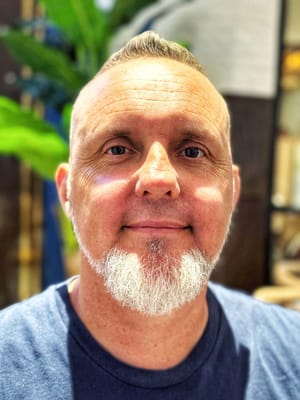



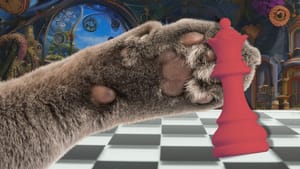
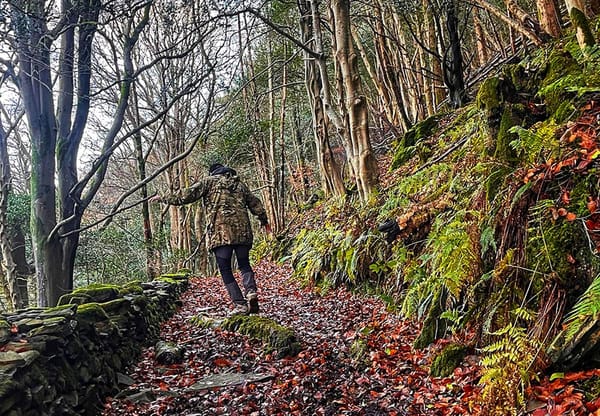
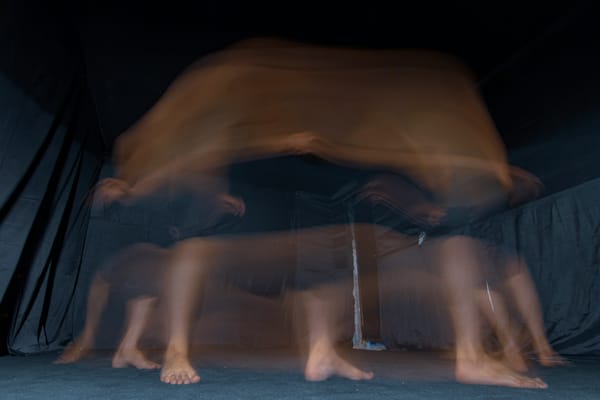


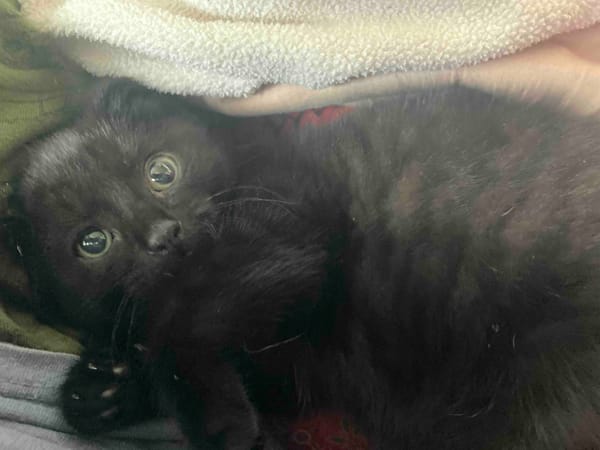
Member discussion